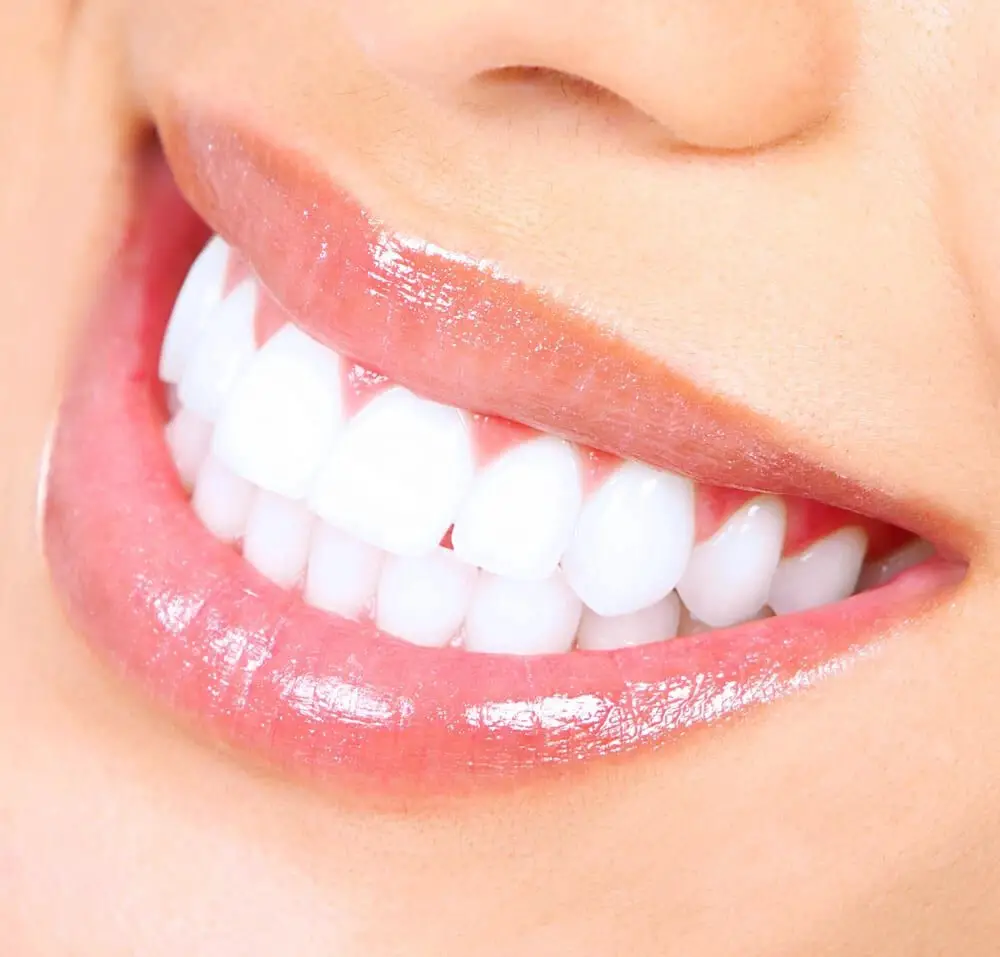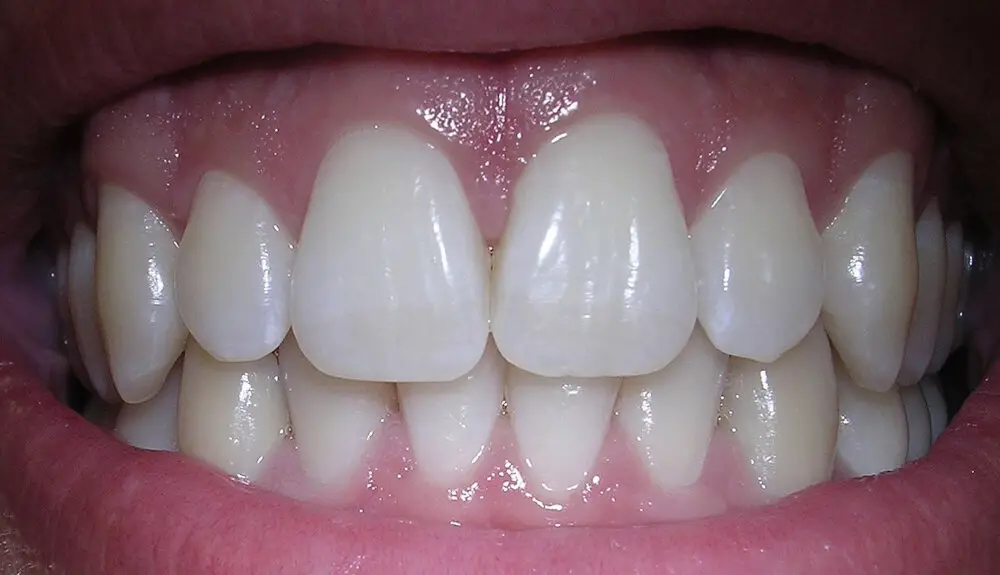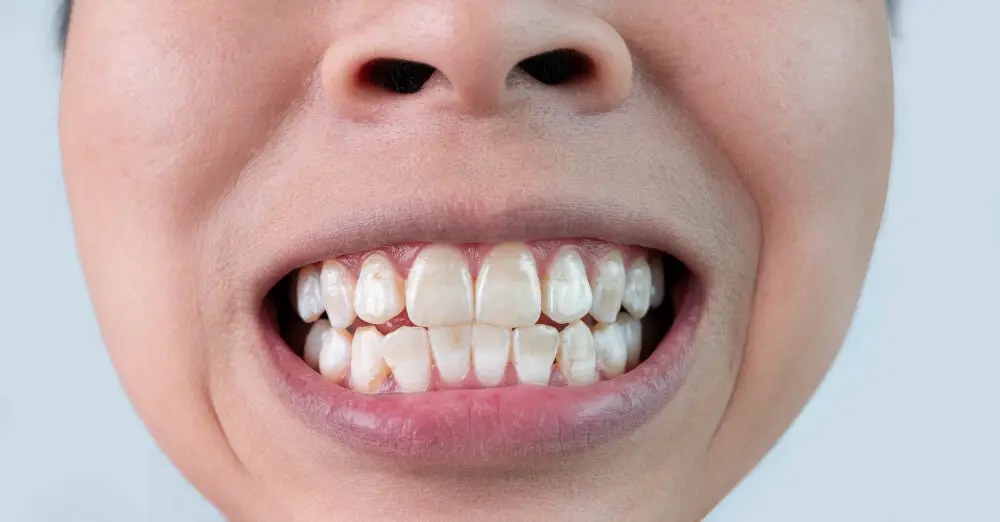Instant Relief: Tips to Stop Sensitive Teeth Pain After Whitening

Sensitive teeth pain can be a real nightmare, especially after teeth whitening. Brightening your smile comes at a cost, and the discomfort that follows can be unbearable. Sensitive teeth are a common issue faced by many people after a teeth whitening procedure. The pain can be triggered by hot or cold food and drinks, sweet or sour, and even just breathing in chilly air. However, do not worry, as there are several tips and tricks to help you alleviate the pain and get instant relief. One of the most common reasons for sensitive teeth after whitening is enamel erosion. Teeth whitening agents can cause the enamel to thin out, exposing the underlying dentin layer, which is more sensitive. In such cases, it is essential to take care of your teeth and follow a few precautions to avoid further damage. This article will provide you with instant relief tips to help you stop sensitive teeth pain after whitening. From using desensitizing toothpaste to avoiding certain foods, we’ve got you covered. Read on to find out more.
Sensitive teeth pain after whitening is a common issue faced by many individuals. The underlying cause of this pain is due to the exposure of the dentin layer, which is the softer layer beneath the enamel, as a result of the whitening process. This exposure can lead to discomfort and sensitivity when consuming hot or cold foods and beverages. However, there are various methods to alleviate this pain, such as avoiding hot or cold foods, using desensitizing toothpaste, and applying fluoride gel. It is important to take proper care of your teeth to prevent any further damage and to consult a dentist if the pain persists.
Finding relief is extremely important when it comes to sensitive teeth pain after whitening. This pain can be excruciating and can greatly affect a person’s daily routine. It is essential to find relief to be able to carry out essential activities without discomfort. The pain can be a result of the whitening process, and it is important to understand the cause of the pain to find the right solution. There are various instant relief tips that can be used to alleviate the pain, such as avoiding hot or cold food and drinks, using desensitizing toothpaste, and applying a cold compress to the affected area. Finding relief is crucial to maintain oral hygiene and keep the teeth healthy.
Use Sensitivity Toothpaste

Using sensitivity toothpaste is an effective way to alleviate tooth sensitivity after whitening. Sensitivity toothpaste contains active ingredients that help to block pain signals from the nerve endings in the teeth. These toothpastes also help to strengthen tooth enamel and protect against further damage. When using sensitivity toothpaste, it’s important to use it consistently for several weeks to see results. Brushing twice a day with sensitivity toothpaste can help to reduce tooth sensitivity and make your teeth feel more comfortable. It’s important to choose a sensitivity toothpaste that is specifically designed for sensitive teeth. Look for a toothpaste that contains potassium nitrate or strontium chloride, as these ingredients are particularly effective at reducing tooth sensitivity. Be sure to read the label carefully and follow the instructions for use. If you experience any discomfort or pain while using sensitivity toothpaste, stop using it immediately and consult your dentist. With consistent use of sensitivity toothpaste, you can enjoy the benefits of a brighter, whiter smile without the discomfort of tooth sensitivity.
Sensitivity toothpaste is a specialized dental product that effectively treats tooth sensitivity. This toothpaste contains active ingredients such as potassium nitrate and fluoride that work together to reduce the sensation of pain caused by exposed dentin. Potassium nitrate blocks the nerve signals in the teeth, while fluoride helps to strengthen the tooth enamel, making it more resistant to acid erosion. Sensitivity toothpaste also contains mild abrasives that help to remove surface stains and plaque, leaving the teeth clean and healthy. It is recommended to use sensitivity toothpaste regularly for at least two weeks to experience its benefits. Sensitivity toothpaste is an excellent solution for those who suffer from tooth sensitivity, especially after teeth whitening.
Sensitive teeth pain after teeth whitening can be a real nuisance, but there are some instant relief tips that can help alleviate the discomfort. One way to provide relief is by using desensitizing toothpaste that contains fluoride or potassium nitrate to reduce sensitivity. Another way is by using a soft-bristled toothbrush and brushing gently to avoid aggravating the sensitive areas. Applying a cold compress or drinking cold water can also help numb the pain. Additionally, avoiding acidic, hot, or cold foods and drinks can help prevent further irritation. By incorporating these relief tips into your routine, you can soothe sensitive teeth pain and enjoy the benefits of a brighter smile without the discomfort.
When it comes to toothpaste for sensitive teeth, there are several brands that are worth considering. Sensodyne is a popular choice and has been clinically proven to provide relief for sensitive teeth. Colgate Sensitive Pro-Relief is another great option, as it contains arginine, an amino acid that helps to block the microscopic channels in the teeth that cause sensitivity. Crest Pro-Health is also a reliable brand that offers toothpaste for sensitive teeth. It contains fluoride, which can help to strengthen tooth enamel and reduce sensitivity. No matter which brand you choose, it’s important to look for toothpaste that is specifically designed for sensitive teeth and to use it consistently for best results.
Apply Desensitizing Gel

When it comes to teeth whitening, it is not uncommon for people to experience sensitivity or pain in their teeth after the procedure. One way to combat this discomfort is to apply desensitizing gel. This gel can be easily applied to the teeth and works by blocking the pathways that lead to the nerves in the teeth. This helps to reduce the sensitivity and pain that can be caused by teeth whitening. Desensitizing gel typically contains potassium nitrate or fluoride, which work to strengthen the enamel and reduce sensitivity. Applying the gel after teeth whitening can provide instant relief and help to prevent future sensitivity. It is important to note that desensitizing gel should be used only as directed. Overuse can lead to side effects such as gum irritation or discoloration of the teeth. It is also important to follow proper oral hygiene practices, such as brushing and flossing regularly, to maintain overall oral health. If sensitivity or pain persists after using desensitizing gel, it is important to consult a dental professional for further evaluation and treatment options. By taking these steps, individuals can enjoy the benefits of teeth whitening without the discomfort of sensitive teeth.
Desensitizing gel is a topical solution that can be applied to sensitive teeth after teeth whitening procedures to alleviate pain and discomfort caused by the procedure. The gel contains active ingredients that work to block nerve signals in the teeth, reducing sensitivity and helping to prevent future pain. Many desensitizing gels also contain fluoride, which helps to strengthen teeth and protect against future damage. These gels can be applied using a brush or tray, and should be used regularly to maintain the effects. While desensitizing gels can be a helpful tool for those experiencing sensitive teeth, it is important to consult with a dentist or dental professional before use to ensure proper application and safety.
Sensitive teeth pain after whitening can be a very unpleasant experience, but there are some instant relief tips that can help alleviate the discomfort. One way to provide relief is by using desensitizing toothpaste, which can help reduce sensitivity and pain by blocking the exposed dentin tubules. Another method is to apply a fluoride gel or varnish to strengthen the enamel and reduce sensitivity. Additionally, using a soft-bristled toothbrush and avoiding acidic foods and drinks can also help reduce sensitivity. Finally, taking over-the-counter pain relievers like ibuprofen or acetaminophen can provide temporary relief until the sensitivity subsides. By following these instant relief tips, individuals can effectively manage sensitive teeth pain after whitening and enjoy a brighter, healthier smile.
When it comes to choosing a brand for sensitive teeth after whitening treatment, there are several options available in the market. However, it is essential to select a trusted and reliable brand that offers effective results without causing any further damage. Some of the most recommended brands for sensitive teeth include Sensodyne, Colgate Sensitive Pro-Relief, Crest Gum & Sensitivity, and Pronamel. These brands are known for their unique formulas that provide instant relief from tooth sensitivity and help strengthen the enamel, making them less prone to future damage. It is advisable to consult with a dentist before selecting a brand to ensure it is suitable for your specific needs.
Avoid Hot and Cold Foods and Beverages

If you’ve just undergone teeth whitening, it’s important to avoid hot and cold foods and beverages to prevent further sensitivity. Consuming hot or cold items can cause a sharp and sudden pain in your teeth, which can be uncomfortable and may last for a few seconds. To prevent this discomfort, it’s recommended to avoid foods and drinks that are too hot or too cold. Opt for room-temperature or lukewarm items until your teeth recover from the treatment. Hot beverages such as coffee or tea, as well as cold drinks like smoothies or iced tea, should be avoided after teeth whitening. Instead, try drinking water or herbal tea at room temperature. Additionally, avoid hot soups, spicy foods, and acidic drinks like citrus juices. These items can worsen the sensitivity and cause pain in your teeth. By avoiding hot and cold foods and beverages, you can help alleviate any discomfort related to teeth whitening and ensure a speedy recovery.
Hot and cold foods and beverages can worsen sensitivity because they can cause changes in temperature, which can lead to the expansion and contraction of the tooth’s enamel and dentin layers. When the enamel is weakened or worn, the dentin layer underneath becomes exposed, and the nerves within it are triggered more easily. This triggers pain in the teeth, which can be exacerbated by consuming hot or cold foods and drinks. Additionally, acidic foods and beverages can also worsen sensitivity by eroding the enamel and exposing the dentin layer. Thus, it is important to avoid or limit the consumption of hot, cold, and acidic foods and drinks to help alleviate sensitivity after teeth whitening.
If you experience sensitive teeth pain after whitening, there are alternative options that you can consider. First, you can try using a toothpaste designed for sensitive teeth, which contains ingredients such as potassium nitrate or strontium chloride to help alleviate discomfort. Another option is to switch to a gentler whitening method, such as using whitening strips or a whitening toothpaste instead of a harsher gel or tray system. Additionally, you can try avoiding foods and drinks that are known to trigger tooth sensitivity, such as hot or cold beverages, acidic foods, and sugary snacks. If your sensitivity persists, it may be helpful to consult with your dentist for further advice on how to manage your symptoms.
Moderation is an integral part of maintaining good oral health, especially when it comes to teeth whitening. While whitening treatments can help improve the appearance of teeth, overuse or misuse can lead to sensitive teeth and other oral health problems. It is essential to follow the recommended instructions and use the product in moderation to avoid any adverse effects. Furthermore, moderation in daily habits such as brushing, flossing, and eating sugary foods is critical to maintaining healthy teeth and gums. Consistency in moderation can prevent dental issues and ensure a healthy and confident smile.
Use a SoftBristled Toothbrush

Using a soft-bristled toothbrush is a crucial step in preventing sensitive teeth pain after teeth whitening. Hard bristles can damage the enamel and cause gum recession, which exposes the sensitive parts of the teeth. A soft-bristled toothbrush, on the other hand, is gentle on the teeth and gums, preventing any further damage. It’s also essential to brush your teeth gently in a circular motion, avoiding aggressive brushing that can cause enamel erosion. By using a soft-bristled toothbrush, you can maintain good oral hygiene while avoiding sensitivity, discomfort, and pain. In addition to using a soft-bristled toothbrush, it’s crucial to select the right toothpaste to prevent sensitive teeth pain after whitening. There are several toothpaste options available, including those specially formulated for sensitive teeth. These toothpaste products are designed to help reduce the sensitivity of the teeth and ease the pain that comes with it. They contain ingredients that help to block the pain signals and soothe the nerves, providing instant relief from sensitivity. By using a toothpaste that’s gentle on your teeth, you can maintain good oral hygiene while ensuring that your teeth remain healthy and pain-free.
Using a soft-bristled toothbrush can significantly help alleviate sensitive teeth pain after whitening. The reason behind this is that hard-bristled toothbrushes can cause unnecessary pressure on the teeth and gums, leading to irritation and sensitivity. Soft-bristled toothbrushes, on the other hand, are gentle on the teeth and gums, effectively removing plaque and debris without causing any harm. Additionally, using a soft-bristled toothbrush in conjunction with desensitizing toothpaste can help reduce tooth sensitivity, leaving you with a comfortable and pain-free smile. Therefore, it is essential to be mindful of the type of toothbrush you use to maintain good oral hygiene and prevent tooth sensitivity.
Proper brushing technique is crucial for maintaining healthy teeth and gums. Using the correct brushing technique removes plaque and food debris from the teeth and gums, which helps to prevent cavities, gum disease, and tooth sensitivity. Brushing twice a day for two minutes with a soft-bristled toothbrush and fluoride toothpaste is recommended. It is important to brush gently in circular motions, taking care to reach all surfaces of the teeth, including the backs, tops, and fronts. Brushing too hard or using a hard-bristled toothbrush can damage the enamel and cause tooth sensitivity. By practicing proper brushing technique, you can maintain a healthy smile and prevent tooth sensitivity after whitening treatments.
When it comes to sensitive teeth pain relief after whitening, there are several recommended brands that can help alleviate discomfort. One popular option is Sensodyne, which is specifically formulated for sensitive teeth and contains potassium nitrate to soothe nerve endings. Crest Pro-Health is another trusted brand that offers a sensitivity toothpaste, as well as a rinse that can help to strengthen enamel and protect against further sensitivity. Additionally, Colgate Sensitive Pro-Relief toothpaste has been clinically proven to provide relief in as little as three days. It’s important to note that everyone’s teeth are different, so it may take some trial and error to find the brand that works best for you.
The article titled \Instant Relief Tips to Stop Sensitive Teeth Pain After Whitening\ provides useful tips for individuals who experience tooth sensitivity after undergoing teeth whitening procedures. Firstly, it recommends the use of desensitizing toothpaste and mouthwash that contain fluoride and potassium nitrate. Secondly, it suggests avoiding acidic and cold foods and beverages, as they can aggravate the sensitivity. Thirdly, it advises using a soft-bristled toothbrush and brushing gently to avoid further irritation. Fourthly, it recommends using a desensitizing gel or serum and applying it directly to the affected teeth. Lastly, it suggests consulting with a dentist if the sensitivity persists or worsens. Overall, these tips are practical and effective in providing instant relief for tooth sensitivity after teeth whitening.
It is crucial to seek professional dental advice if tooth pain persists after teeth whitening treatment. While the sensitivity after the procedure is common, prolonged pain can indicate a more serious dental issue. Ignoring the symptoms and not seeking professional advice may lead to severe damage to the teeth and gums. A dental professional can diagnose the underlying cause of the discomfort and provide a tailored treatment plan to alleviate the pain. Early intervention can prevent more significant problems from developing, and it is essential to prioritize dental health by seeking expert advice when necessary.
If you’re dealing with sensitive teeth after whitening, it’s important to take a step back and evaluate your whitening routine. While it can be tempting to continue with treatments to achieve that perfect white smile, it’s crucial to do so with caution and care to avoid further damage and discomfort. Consider switching to a gentler whitening product or reducing the frequency of treatments. Don’t forget to prioritize proper oral hygiene, including brushing and flossing regularly, to maintain the health of your teeth and gums. With the right approach, you can continue to achieve a brighter smile without sacrificing your dental health and comfort.
Conclusion

In conclusion, sensitive teeth pain after whitening can be a discomforting experience, but it can be managed by following the tips mentioned above. It is essential to take care of our oral health and be cautious while using teeth whitening products. Sensitivity is a common side effect of teeth whitening, but it should not deter us from achieving a brighter smile. With proper care and attention, we can enjoy the benefits of teeth whitening without any pain or discomfort. It is advisable to consult a dentist if the sensitivity persists or worsens. Let’s prioritize our oral health and smile confidently with a dazzling white smile.







